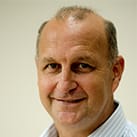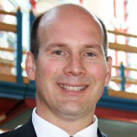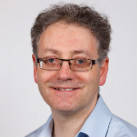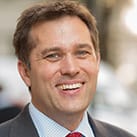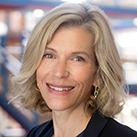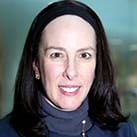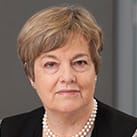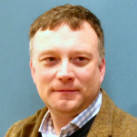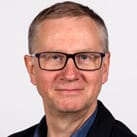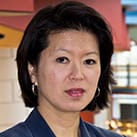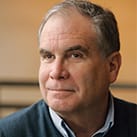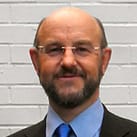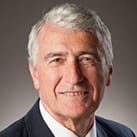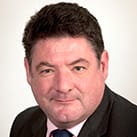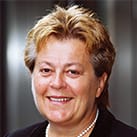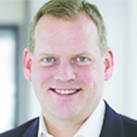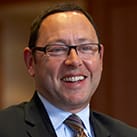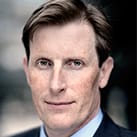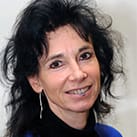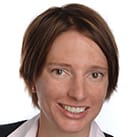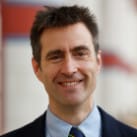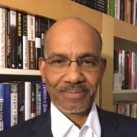7th Risk Summit (2016)

20 Jun 2016
09:00 -20:00
21 Jun 2016
09:00 -16:00
Times are shown in local time.
Open to: Specialists and business managers, including threat specialists, academics, policy-makers, practitioners and advisors

Cambridge Judge Business School
Trumpington St
Cambridge
CB2 1AG
United Kingdom
Risk Culture: Challenging Individual Agency
In June 2016, the Cambridge Centre for Risk Studies brought together leaders and decision makers from businesses, governments, academia and NGOs to explore salient topics in risk management. The summit was held at the University of Cambridge Judge Business School with a conference dinner following at Trinity Hall College, Cambridge.
2016’s summit theme was Risk Culture: Challenging Individual Agency, and explored the meaning of risk culture and its contribution to governance and responsibility in organisations. In the wake of several public incidents of corporate misconduct, there has been a growing focus on risk culture management as a complementary approach to improving individual agency and accountability within both private companies and public bodies. It has now been proposed that the maintenance of good corporate behaviour and responsible attitudes in firms will ensure that its individual employees engage in higher ethical standards and appropriate levels of risk taking in the future. Over two days, the Risk Summit aimed to shed light on the new debate over the need for risk culture management: what it is, how effective it can be and on what scale, and whether there is a need for its regulation.
Keynote speakers include:
- Professor Michael Power, Professor of Accounting, London School of Economics
- Professor Dan M. Kahan, Elizabeth K. Dollard Professor of Law & Professor of Psychology, Yale Law School
Registration closed
Registration for this event is closed. If you are interested to hear about upcoming events and other Centre-related news and resources, please join our mailing list.

Principal knowledge partner
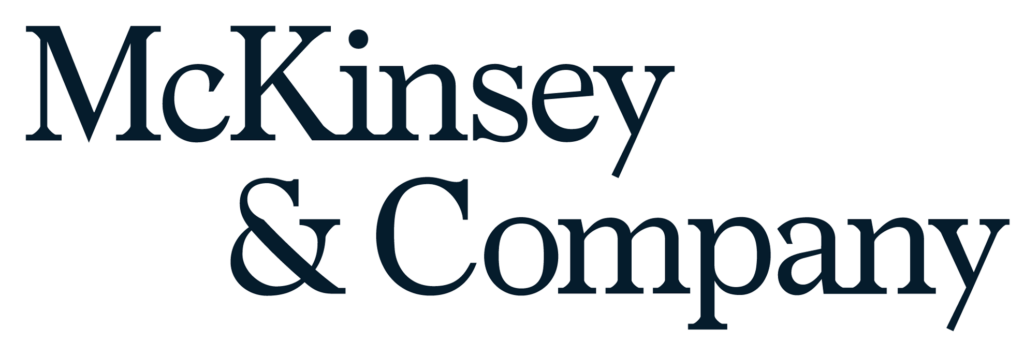
Sustaining meeting partner
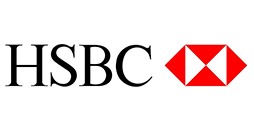
Meeting partners
Programme
Day 1
Monday 20 June 2016
09:00 – 14:30
Special Topics Seminar
15:30 – 16:00
7th Risk Summit Registration and Coffee/Tea
16:00 – 18:00
Plenary Session 1
18:30 – 20:00
Drinks Reception at Trinity Hall college
20:00
Risk Summit Dinner at Trinity Hall college
Day 2
Tuesday 21 June 2016
09:00 – 09:30
7th Risk Summit Registration & Coffee
09:30 – 11:30
Plenary Session 2
11:30 – 13:00
Plenary Session 3
13:00 – 14:00
Lunch at Cambridge Judge Business School
14:00 – 15:00
Plenary Session 4
Cambridge-McKinsey Risk Prize Announcement
15:00 – 16:00
The Cambridge Risk Debate
Special topics seminar
09:00 – 10:10
Session 1: Cambridge Risk Framework
Registration and coffee
CRS Research Activities in 2016 – Dr Andrew Coburn, Director of Advisory Board at the Cambridge Centre for Risk Studies, and Risk Management Solutions
Recovery & Resilience after Catastrophes – Kristen MacAskill, Risk Researcher at the Cambridge Centre for Risk Studies
10:10 – 11:40
Session 2: Emerging Risks
Developing Scenarios for Managing Cyber Catastrophe Risk – Eireann Leverett, Senior Risk Researcher at the Cambridge Centre for Risk Studies
Helios: Understanding the Economic Risk of Solar Storms – Jennifer Copic, Research Assistant at the Cambridge Centre for Risk Studies
Critical National Infrastructure & Technology Catastrophe Risk – Dr Edward Oughton, Research Associate at the Cambridge Centre for Risk Studies
11:40 – 13:30
Session 3: Modelling & Communicating Risk
Financial Catastrophe Research & Stress Test Scenarios – Dr Andy Skelton, Research Associate at the Cambridge Centre for Risk Studies
Financial Risk & Network Analysis – Dr Ali Shaghaghi, Research Associate at the Cambridge Centre for Risk Studies
Putting It All Together: Cambridge Risk Framework – Simon Ruffle, Director of Research & Innovation at the Cambridge Centre for Risk Studies
Lunch
13:30 – 14:15
Session 4: Risk Culture & Governance
Setting a Risk Culture Research Agenda – Professor Daniel Ralph, Academic Director of the Cambridge Centre for Risk Studies
Modelling the Interplay between Personal & Collective Agencies – Dr Michelle Tuveson, Executive Director of the Cambridge Centre for Risk Studies
Regulating Risk Culture in the Financial Services – Professor Kern Alexander, Chair of Law and Finance at the University of Zurich and Risk Fellow at the Cambridge Centre for Risk Studies
Keynote Speakers
Professor Dan M Kahan
Elizabeth K Dollard Professor of Law & Professor of Psychology, Yale Law School
Dan Kahan is the Elizabeth K Dollard Professor of Law and Professor of Psychology at Yale Law School. He is a member of the Cultural Cognition Project, an interdisciplinary team of scholars who use empirical methods to examine the impact of group values on perceptions of risk and science communication. In studies funded by the National Science Foundation, Professor Kahan and his collaborators have investigated public conflict over climate change, public reactions to emerging technologies, and public understandings of scientific consensus across disputed issues. Articles featuring the Project’s studies have appeared in a variety of peer-reviewed scholarly journals including the Journal of Risk Research, Judgment and Decision Making, Nature Climate Change, Science, and Nature. The Project is currently engaged in a field research that test evidence-based strategies for promoting public engagement with climate science in Southeast Florida.
Professor Michael Power
Professor of Accounting, London School of Economics
Michael Power is Professor of Accounting at the London School of Economics. Educated at St Edmund Hall, Oxford and Girton College Cambridge, he is a Fellow of the Institute of Chartered Accountants in England and Wales (ICAEW), an Associate member of the UK Chartered Institute of Taxation, and an honorary fellow of the Institute of Risk Management. Formerly on the board of St James’s Place plc from 2005-2013 and currently a non-executive Director of RIT Capital Partners plc and Chairman of St James’s Place International. He also has a number of advisory positions for public bodies, including the Financial Reporting Council, and was Director of the Centre for Analysis of Risk and Regulation at LSE until April 2014. Power holds honorary doctorates from the University of St Gallen, Switzerland and the University of Uppsala, Sweden. His research and teaching focus on regulation, accounting, auditing, internal control, risk management and organisation theory. His major works are The Audit Society: Rituals of Verification (Oxford 1999) and Organized Uncertainty: Designing a World of Risk Management (Oxford 2007).
Speakers and Panellists
Kern Alexander
Chair for Banking & Financial Market Regulation, University of Zurich
Fellow, Cambridge Centre for Risk Studies
Kern Alexander is Chair for Banking & Financial Market Regulation at the University of Zurich. He is a lawyer and economist with a research focus on the regulation of systemic risk in financial markets. His academic publications include co-author of the first book to analyse critically the international regulation of systemic risk in financial markets (Global Governance of Financial Systems (OUP 2006) with Dhumale and Eatwell). He is also the author of Economic Sanctions: Law and Public Policy (Macmillan, 2009) providing a comprehensive analysis of the regulatory and governance aspects of economic and financial sanctions. He has written extensively on UK market abuse and insider law and regulation, and is co-editor of the Research Handbook on International Financial Regulation (Elgar, 2012 with Dhumale) and co-editor with N. Moloney of Law Reform and Financial Markets (2011, Elgar).
Kern has authored articles in peer-reviewed journals including the Journal of International Economic Law, European Law Review, European Business Organisation Review, and Journal of Corporate Law Studies. He has written several commissioned reports for the European Parliament on financial regulatory reform and the Eurozone sovereign debt crisis and was a Member of the Expert Panel on Financial Services for the European Parliament (2009-2014). He was Specialist Advisor to the British Parliament’s Joint Select Committee on the Financial Services Act 2012 and has served as an adviser to the UK Serious Fraud Office on the Libor investigations. He was educated at the Universities of Cornell, Oxford and Cambridge.
Richard Bridge
Head of Government and Political Affairs, BP
Richard Bridge was born in 1959, and educated in Lancashire. He read Modern Languages (Russian and French) at Oxford University and in 1984 completed a PhD on the economic development of the Russian sub-Arctic at the Scott Polar Research Institute, Cambridge. He joined the Foreign Office in 1984 and in a career spent largely working on Russia he served in Warsaw, Moscow, New Delhi and Geneva as well as in London. In 2011 he joined BP, the UK-based international energy company, as Head of Government and Political Affairs, a role in which he advises the company on political situations in the world. He lives and works in London.
Rowan Douglas CBE
CEO of the Capital, Science & Policy Practice, Willis Towers Watson
Rowan Douglas is CEO of the Capital, Science & Policy Practice at Willis Towers Watson, a leading global advisory, broking and solutions company. Previously, he served on the Board of the Group’s reinsurance division, Willis Re, as CEO of Global Analytics.
In 2011, Rowan was appointed to the UK Prime Minister’s Council for Science & Technology; he is also a member of the Royal Society’s Working Group on Resilience to Climate Risk and Extreme Weather and chairs the Willis Research Network of 50 universities worldwide.
He has held various appointments within the UN and other international organisations and was awarded a CBE in the 2016 New Year’s honours for services to the economy through risk, insurance and sustainable growth. Rowan sits on the Executive Committee of the International Insurance Society (IIS), New York from which he received the Kenneth R. Black Award in 2014.
Kay Firth-Butterfield
Chief Officer of the Ethics Advisory Panel, Lucid and Adjunct Professor, University of Texas Law School
Kay Firth-Butterfield has worked for the past three decades as a barrister, mediator, arbitrator, business owner, professor and judge in the United Kingdom. In the United States, she has taught at the undergraduate and law school levels and worked as a professional lecturer. She is a humanitarian with a strong sense of social justice and has advanced degrees in Law and International Relations. In her role as Chief Officer and member of the Lucid.ai Ethics Advisory Panel (EAP) she has advised governments, think tanks and non-profits about artificial intelligence, law and policy. Her role as Chief Officer of the Lucid EAP goes beyond the traditional ethics and compliance.
She has helped to create the Consortium for Law and Policy of Artificial Intelligence and Robotics at the interdisciplinary Strauss Center, University of Texas and she teaches the first course of the Consortium: Artificial Intelligence and emerging technologies: Law and Policy. Additionally, Kay is Vice Chair of an IEEE Industry Connections Committee considering Artificial Intelligence. Kay thinks about how AI and other technology will impact business and society and how business can prepare for that impact in its internal planning and external interaction with customers and other stakeholder and is a regular guest speaker at meetings addressing many aspects of these challenging changes.
Andrew Freeman
Risk Fellow, Centre for Risk Studies and Director, Finance Foundation
Andrew Freeman is the Founder and Managing Director of Cambridge Research Associates, a research and advisory company that specialises in risk-related work for global clients. Over a 25-year career he has written numerous articles and books, first as a journalist on The Economist and latterly in his role as a Senior Knowledge Expert in Risk at McKinsey. Between 2009 and 2011 he was Executive Director of the Center for Financial Services at Deloitte LLP, overseeing its research programme on the financial services industry. In 1998 he published Seeing Tomorrow: Rewriting the Rules of Risk, co-authored with Ron Dembo, founder of Algorithmics.
Andrew is a graduate of Balliol College, Oxford and was also elected a Domus Senior Scholar at Merton College, Oxford.
Ben Hardy
Senior Lecturer in Public Policy and Management, SOAS, University of London; Fellow in Management, Finance & Physiology, Cambridge Judge Business School and Guest Lecturer in Organisational Behaviour, London Business School
Ben started out as a veterinary surgeon working in both academia and general practice. He then joined a pharmaceutical company and provided technical support both internally to marketing, R&D and sales, and externally to vets, clients and other industry organisations. He came to the University of Cambridge originally just to undertake an MBA but then he stayed to complete an MPhil (with distinction) and a PhD, which looked at morale in organisations. He has taught on the MBA, EMBA and Master of Finance at Cambridge and the Master’s in Finance and EMBA at London Business School.
Ben has taught and provided consulting services to a number of organisations such as Barclays, WPP, BT, McKinsey & Co., Novartis, McLaren Group, China Minsheng Bank, HSBC, Prudential, Detica/BAE Systems, Agricultural Bank of China, Slaughter and May, International and Commercial Bank of China, and IBM. His research looks at the role of hormones and emotions in risk taking and financial decision making, linguistics and communication in surveys and morale in organisations. His work has been published in science and management journals such as Proceedings of the National Academy of Sciences of the USA and Organizational Research Methods. His research has been covered by the Financial Times, The Times, the BBC, Wall St Journal, Reuters, Sky News, The Daily Mail and The Sun. He has also been interviewed on the PM programme on Radio 4 on how to conduct effective meetings.
Jennifer Howard-Grenville
Diageo Reader in Management Studies, University of Cambridge Judge Business School and Associate Editor of "Academy of Management Journal"
Jennifer Howard-Grenville studies processes of organisational and institutional change and has explored the role of routines, issue selling, and culture in enabling and inhibiting change. She is particularly interested in how people change their organisations in response to environmental and social demands.
Dr Howard-Grenville’s work has been published in Academy of Management Journal, Organization Science, Organization & Environment, Law & Social Inquiry, California Management Review and several other journals. She is the author of Corporate Culture and Environmental Practice (Edward Elgar, 2007), which documents her in-depth study of a high-tech company, and co-author or editor of two other books on industrial ecology.
Jennifer is Associate Editor of the Academy of Management Journal (2013-2016), and an Editorial Review Board Member of the Academy of Management Journal (since 2010), Organization Science (2009-2013), and Organization & Environment (since 2011).
Professor Stelios Kavadias
Professor Margaret Thatcher in SME Studies, Growth and Innovation, Director of Research, and Director of the Entrepreneurship Centre, Cambridge Judge Business School
Professor Stylianos (Stelios) Kavadias is both Director of Research and Director of the Entrepreneurship Centre at Cambridge Judge Business School. He serves as an Associate Editor for Management Science‘s Entrepreneurship and Innovation department, and as the Department Editor for the R&D, New Product Development and Project Management department of Production and Operations Management. At Georgia Tech’s Huang Executive Education Center he regularly contributed to open enrolment and custom executive programmes on innovation and project management, and was the Academic Director of their GE Energy PLMP programme. He has authored several case studies through close collaboration with major firms across multiple industries.
Cindy Levy
Director, McKinsey, London
Cindy is a Director based in McKinsey’s London office. Cindy works primarily for global financial institutions on their strategy, finance and risk management agendas. She leads the EMEA Risk Management Practice, along with McKinsey’s knowledge on risk topics such as risk culture, operational risk and risk organisation. Prior to joining McKinsey, Cindy worked for two years at Goldman Sachs & Co. in New York in corporate finance. During this period she analysed and executed a number of transactions including equity offerings, debt offerings and mergers.
Cindy received an AB in Economics from Harvard University in 1988, and an MBA from Stanford Graduate School of Business in 1992.
Rachel Lomax
Senior independent non-executive Director, Chairman of the Conduct & Values Committee, HSBC Holdings
Rachel Lomax joined the HSBC Board of Directors in 2008 and was appointed Senior Independent Director in April 2015. She has experience in the public and private sectors, plus a deep knowledge of the operations of the UK government and financial system.
Her previous appointments include Deputy Governor, Monetary Stability, at the Bank of England (BoE) and a member of the BoE’s Monetary Policy Committee; Permanent Secretary at the UK Government Departments for Transport and Work and Pensions and the Welsh Office; Vice President and Chief of Staff to the President of the World Bank, President of the Institute of Fiscal Studies; Chairman of the International Regulatory Strategy Group and director of TheCityUK. She was also a non-executive director of Reinsurance Group of America and The Scottish American Investment Company.
Ms Lomax is currently a director of Bruegel, a Brussels-based European think tank; non-executive director of Arcus European Infrastructure Fund GP and Heathrow Airport Holdings; member of the Council of Imperial College, London and trustee of the Ditchley Foundation. She is also a non-executive director and chairman of the corporate responsibility committee of Serco Group.
Duncan Needham
Senior Risk Researcher, Centre for Risk Studies and Director, Centre for Financial History
Duncan Needham is a Senior Risk Researcher at the Centre for Risk Studies, a Lecturer in the Faculty of History, Director of the Centre for Financial History, and a Fellow of Darwin College. Before returning to academia, he worked as a credit trader at JP Morgan and then as a portfolio manager at Cairn Capital. Dr Needham lectures in economic history and teaches undergraduate courses in history, economics and politics. His PhD thesis was published by Palgrave Macmillan in 2014 and awarded the Economic History Society’s 2015 Thirsk-Feinstein Prize for best doctoral dissertation.
Simon Ruffle
Director of Technology Research & Innovation, Centre for Risk Studies
Simon’s responsibilities include managing research in the Centre, particularly the TechCat track – solar storm and cyber catastrophe research, and the Cambridge Risk Framework, a platform for analysing multiple global systemic risks through unified modelling software; a common database architecture and information interchange standards.
He is responsible for developing and maintaining partnership relationships with corporations, governments, and other academic centres. He speaks regularly at seminars and conferences.
He is developing methods for storing and applying the Centre’s Stress Test Scenarios and other Risk Assessment Tools to macro-economic analysis, financial markets and insurance loss aggregation. He is researching how network theory can be applied to understanding the impact of catastrophes in a globalised world, including supply chains, insurance and banking.
Originally studying architecture at Cambridge, Simon has spent most of his career in industry, developing software for natural hazards risk. He has worked on risk pricing for primary insurers, catastrophe modelling for reinsurers, and has been involved in placing catastrophe bonds in the capital markets. He has many years of experience in software development, relational databases and geospatial analysis and has worked in a variety of organisations from start-ups to multinationals.
Michelle Tuveson
Executive Director, Centre for Risk Studies
Michelle Tuveson is a Founder and Executive Director at the Cambridge Centre for Risk Studies, University of Cambridge Judge Business School. Her responsibilities include the overall executive leadership at the Centre. This includes developing partnership relationships with corporations, governments, and other academic centres. Dr Tuveson leads the Cambridge CRO Council and she chairs the organising committee for the Cambridge Risk Centre’s Annual Risk Summits. She is one of the lead organisers of the Aspen Crisis and Risk Forum. She is an advisor to the World Economic Forum’s 2015 Global Risk Report and has contributed to the Financial Times Special Report on Risk Management. She is also an advisor to a number of corporations and boards as well as a frequent conference speaker.
Dr Tuveson has worked in corporations within the technology sector with her most recent position in the Emerging Markets Group at Lockheed Martin. Prior to that, she held positions with management strategy firm Booz Allen & Hamilton, and US R&D organisation MITRE Corporation. Dr Tuveson’s academic research focuses on the application of simulation models to study risk governance structures associated with the role of the Chief Risk Officer. She was awarded by the Career Communications Group as a Technology Star for Women in Science, Technology, Engineering and Maths (STEM). She earned her BS in Engineering from the Massachusetts Institute of Technology, MS in Applied Math from Johns Hopkins University, and PhD in Engineering from the University of Cambridge. She is a member of Christ’s College Cambridge.
Miguel Angel Centeno
Musgrave Professor of Sociology and Professor of Sociology and International Affairs, Princeton University
Miguel Angel Centeno is the Musgrave Professor of Sociology and Professor of Sociology and International Affairs at Princeton University. He obtained his BA in History in 1980, his MBA in 1987 and his PhD in Sociology in 1990, all from Yale University.
He has published many articles, chapters, and books most recently State and Nation Making in the Iberian World (Cambridge University Press, 2013) and War and Society (Polity, 2016). State Making in the Developing World will be published by Cambridge in 2016. He is the founder of the Research Community on Global Systemic Risk funded by PIIRS from 2013-2020 and recently published results in the Annual Review of Sociology. He is currently beginning a project on the concept of discipline. In 2000, he founded the Princeton University Preparatory Program, which provides intensive supplemental training for lower income students in local high schools. From 2003 to 2007, he served as the founding Director of the Princeton Institute for International and Regional Studies. From 1997-2004 he also served as Master of Wilson College at Princeton. Beginning in 2012, he has served as Chair of the Sociology Department. In 2014 he produced a Coursera course on “The Paradoxes of War”.
Dr Andrew Coburn
Director of Advisory Board, Centre for Risk Studies
Andrew Coburn manages the External Advisory Board of the Centre for Risk Studies, coordinating the inputs of consumers of research into the Centre’s risk agenda. Andrew is the principal coordinator of the research programme on ‘System Shock’ at the Centre.
Andrew is one of the leading contributors to the creation of the class of catastrophe models that over the past 20 years has come to be an accepted part both of business management in financial services and of public policy making for societal risk. He has extensive experience in developing models and using them for business decision support. Andrew has also provided research inputs into government policy, such as House of Congress legislation on terrorism risk management policy and urban planning for disaster mitigation in Mexico, Metro Manila, and Southern Italy.
Dr Andrew Coburn is a member of the senior management of Risk Management Solutions, the leading provider of catastrophe risk models to the insurance industry.
Lord John Eatwell
President, Queen’s College, Cambridge
Lord Eatwell is President of Queens’ College. He is also a director of NewDay, a credit card company, and an adviser to the private equity firms Warburg Pincus & Company International and Palamon Capital Partners. He has been a teaching fellow at Harvard University and a Visiting Professor at Columbia University, the University of Massachusetts at Amherst, the University of Amsterdam and the New School for Social Research, New York.
In 1988, he was part of the team that set up the Institute for Public Policy Research, one of Britain’s leading think tanks. He entered the House of Lords in 1992, and from 1993 to 1997 was Principal Opposition Spokesman on Treasury and Economic Affairs, a post he resumed from 2010 to 2013. Lord Eatwell was Chairman of the British Library from 2001 to 2006 and a member of the Board of the Royal Opera House 1998-2006.
He is currently Chairman of both the Royal Opera House Pension Fund Trustees and the Jersey Financial Services Commission.
John Flynn
Global Head of Anti Fraud & Investigations, Deutsche Bank
John is the Global Head of Anti Fraud & Investigations for Deutsche Bank. He provides the strategic direction of anti- fraud and investigation management across the bank to ensure that Deutsche Bank is in compliance with global anti-fraud laws and regulations and in particular the requirements of the German Banking Act. In partnership with the various businesses he develops and implements new policies and procedures to address emerging threats and challenges.
Prior to joining Deutsche Bank he was the Head of Financial Crime Prevention for BNP Paribas in the UK. This included being the FCA-approved Money Laundering Reporting Officer (MLRO) for the UK Investment Bank but also responsible for the oversight of four other MLROs in the UK, covering Wealth Management, Asset Management, Security Services and Real Estate. The scope of this role covered all aspects of financial crime including anti-bribery and corruption, fraud, sanctions and anti money laundering (AML).
He has implemented AML, fraud and ABC frameworks across the world and was the Group Financial Crime Director at Aviva, where he was responsible for establishing the financial crime strategy and risk appetite across 30 countries.
A frequent commenter and presenter on financial crime and has contributed to a number of books and periodicals on all aspects of financial crime. He is currently a member of the BBA Financial Crime Committee and leads on anti-fraud matters for the BBA.
Julia Graham
Technical Director & Deputy CEO, AIRMIC
Julia is the Technical Director of Airmic, the UK association of risk and insurance professionals. She heads the development of a technical agenda which includes strategic thought leadership on risk and insurance issues and the learning and development needs of Airmic members.
Julia has been a risk and insurance professional for over 40 years, most recently as Director of Risk Management and Insurance for the global law firm DLA Piper, and prior to that head of risk and insurance at insurer RSA.
Julia is a Fellow of the Chartered Insurance Institute, a Fellow of the Business Continuity Institute, UK lead expert for the development of the global risk management standard ISO 31000, immediate past President and a Board member of Ferma the Federation of European Risk Management Associations and a Non-Executive Director of several captive insurance companies.
Dr Sven Heiligtag
Principal, McKinsey & Company
Dr Sven Heiligtag is a Partner in McKinsey & Company’s Hamburg office. Sven is a leader in McKinsey’s Risk Management Practice as well as in the Electric Power & Natural Gas Practice. He is responsible for all Corporate Risk topics and is leading the company’s energy trading and risk management survey in Europe. He has deep experience in advising clients in the energy and natural resources industries on challenges in risk management, corporate finance, strategy and organisation.
Sven has a master’s degree and a PhD in Chemistry from the University of Hamburg.
Paul Jardine
Executive Vice President & Chief Experience Officer, XL Catlin
Paul was previously Catlin’s Chief Operating Officer and has responsibility for XL Group’s Communications & Marketing function, Claims and Distribution Strategy. Paul joined Catlin in 2001 with responsibility for the development of new financial products. He was appointed Chief Executive of the Catlin Syndicate in 2003 and Chief Operating Officer of Catlin in 2004.
He also was a partner at Coopers & Lybrand, where he was involved almost exclusively with issues dealing with Lloyd’s and the London insurance market. He began his career with Prudential Assurance Company as an actuarial student and subsequently an actuary. He is a Fellow of the Institute of Actuaries. He was Chairman of the Lloyd’s Market Association 2007-2010 and is currently a Member of the Council of Lloyd’s and Deputy Chairman Lloyd’s.
Samuel Leupold
CEO of Windpower, DONG Energy
Samuel Leupold is CEO at DONG Energy Wind Power. He has been a member of Dong Energy’s group management since 2013 and is responsible for the global wind power business of the company. He has previously worked for ABB Power Generation, Bühler and McKinsey. From 2006 to 2013, he was the Executive Vice President of BKW FMB Energie.
Alison Liebling
Director, Prisons Research Centre and Professor of Criminology & Criminal Justice, Department of Criminology, University of Cambridge
Alison Liebling is Professor of Criminology and Criminal Justice at the University of Cambridge and the Director of the Institute of Criminology’s Prisons Research Centre. She has carried out research on prison suicide and prevention strategies, conceptualising and measuring the moral quality of prison life, the management of difficult prisoners, incentives and earned privileges, staff-prisoner relationships, and values, practices and outcomes in public and private sector corrections. Her most recent research is on the changing nature of staff-prisoner and prisoner-prisoner relationships in high security prisons and the changing role of religious identity in prison. She was awarded an ESRC–funded ‘Transforming Social Science’ research contract in 2012-2014 to explore the location and building of trust in high security settings. Her books include Suicides in Prison (1992), Prisons and their Moral Performance: A Study of Values, Quality and Prison Life (2004), The Effects of Imprisonment (2005), The Prison Officer (2nd edition, 2011) and Legitimacy and Criminal Justice: International Explorations (2013). She is an expert member of the EU-funded working project led by the Netherlands on Prisons of the Future. She was awarded an Honorary Doctorate from the University of Örebro, Sweden in 2012.
Susanne Maurenbrecher
Risk Expert, McKinsey & Company
Dr Susanne Maurenbrecher is a Risk Expert in McKinsey & Company’s Hamburg office. She is managing the ERM Service Line as well as leading the Risk diagnostics team and has deep experience in advising financial institutions and corporate clients.
Susanne holds a PhD in business economics from the Technical University of Chemnitz; her thesis focuses on M&A in banking.
Daniel Ralph
Academic Director, Centre for Risk Studies and Professor of Operations Research, University of Cambridge Judge Business School
Professor Daniel Ralph is a Founder and Director of the Centre for Risk Studies, Professor of Operations Research at Cambridge Judge Business School, and a Fellow of Churchill College.
Daniel received his PhD in 1990 from the University of Wisconsin Madison. He was a faculty member of the Mathematics & Statistics Department at the University of Melbourne before coming to the University of Cambridge for a joint appointment in the Engineering Department and Cambridge Judge Business School.
Daniel’s research interests include optimisation methods, equilibrium models for electricity markets, and risk in business decision making. He is Editor-in-Chief of Mathematical Programming (Series B).
Alan Smith
Global Head of Risk Strategy & Senior Executive Officer of Group Risk, Global Risk, HSBC Holdings
Alan Smith is Global Head of Risk Strategy and Senior Executive Officer of Group Risk at HSBC. He is a member of HSBC’s Global Risk Management Board, which oversees the 25,000 member Global Risk Function and of the Group Asset and Liability Management Committee. He co-chairs its Stress Testing, Model Risk and Pensions Risk Oversight Committees. Included within his team’s remit is the articulation of HSBC’s Global Enterprise Wide Risk Management, and Risk Appetite, frameworks.
Alan has worked with HSBC for 21 years in a variety of senior finance, risk and capital management roles in the Group Head Office, in its Global Banking and Markets Business, in London and in Saudi Arabia. Prior to HSBC, Alan worked with KPMG London from 1987 to 1994. Alan is a Fellow of the Institute of Chartered Accountants of England and Wales and has an MBA in Finance from Cass Business School, City University in London. He completed his undergraduate degree in Accounting at the University of the West Indies in Jamaica.
Alan has a keen interest in cricket, theatre and history, amongst others. He is a member of the MCC and played cricket at the junior level for Barbados. He sits on the Audit Committee of the Commonwealth Secretariat, on the Finance Committee of an international faith based organisation working with university students, and on the Advisory Board of the Centre for Risk Studies at the University of Cambridge Judge Business School. He is a Fellow of the Royal Society of Arts, Manufactures and Commerce. In 2015, he co-authored his first book, Dreaming a Nation, which won a Frank Collymore Literary Award in Barbados.






